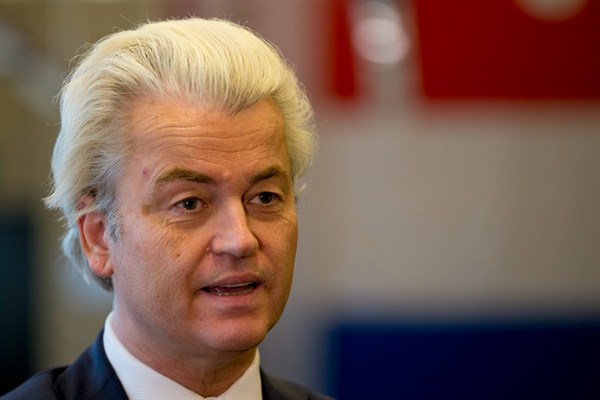When U.S. Republicans gathered to nominate Donald Trump as their presidential candidate at the party’s national convention last July, one of the many apocalyptic speeches they heard came from a man with a Dutch accent, bearing stark warnings from Europe: Geert Wilders, with his trademark bleached blonde bouffant, delivered a message that resonated with crowds accustomed to hearing Trump’s ominous worldview. “The situation in Europe today is worse than ever,” Wilders announced. “Europe, as a matter of fact, is collapsing, is imploding, is exploding. We have terror attacks by the Jihadis almost every week.”
Wilders, a member of the Dutch parliament, has built a career on warning about the grave dangers posed by Islam. That career now faces its most pivotal test. On March 15, Dutch voters will choose a new parliament, and Wilders’ Party for Freedom (PVV) could emerge with the most seats.
A victory by the unabashedly anti-Islam, anti-immigrant PVV would mark a stunning reversal for the Netherlands, one of the most liberal, tolerant countries in the world.

